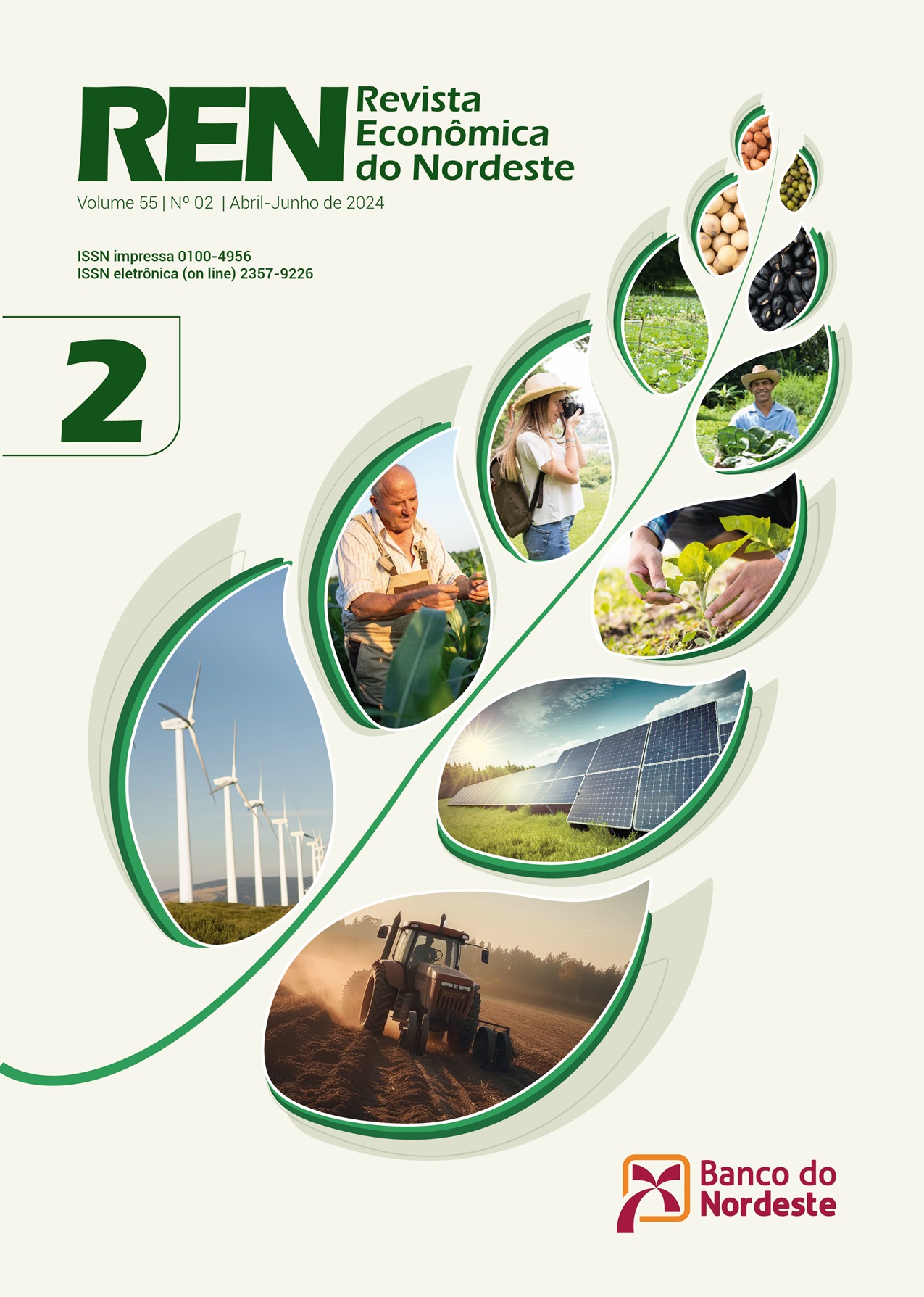DETERMINANTS OF ACCESS TO RURAL CREDIT FINANCING PROGRAMS IN BRAZIL: AN ANALYSIS FROM THE 2014 PNAD
DOI:
https://doi.org/10.61673/ren.2024.1470Keywords:
Rural credit, Pronaf, PNAD, Multinomial logitAbstract
This article evaluated the observable characteristics of both the producer and the agricultural enterprise that supported access to a credit financing program, whether via the National Program for Strengthening Family Agriculture (Pronaf) or via another program, in relation to non-access. The 2014 National Household Sample Survey (PNAD) was used and a multinomial logit model was estimated. It was found from the results that being literate, having received technical assistance, being the owner of the enterprise and having sold production with a cooperative increased the chances of access to a credit program compared to not having access. The results also identified some differences between access to Pronaf and another program, such as occupation in agricultural activity and income level. The fact of being a man and living in a rural area increased the producer's chances of accessing Pronaf.Downloads
Download data is not yet available.
Downloads
Published
2024-05-14
How to Cite
MAchado, B. de S., Neves, M. de C. R., & Mattos, L. B. de. (2024). DETERMINANTS OF ACCESS TO RURAL CREDIT FINANCING PROGRAMS IN BRAZIL: AN ANALYSIS FROM THE 2014 PNAD. Revista Econômica Do Nordeste, 55(2), 27–46. https://doi.org/10.61673/ren.2024.1470
Issue
Section
Artigos
License
Copyright (c) 2023 Revista Econômica do Nordeste

This work is licensed under a Creative Commons Attribution 4.0 International License.








